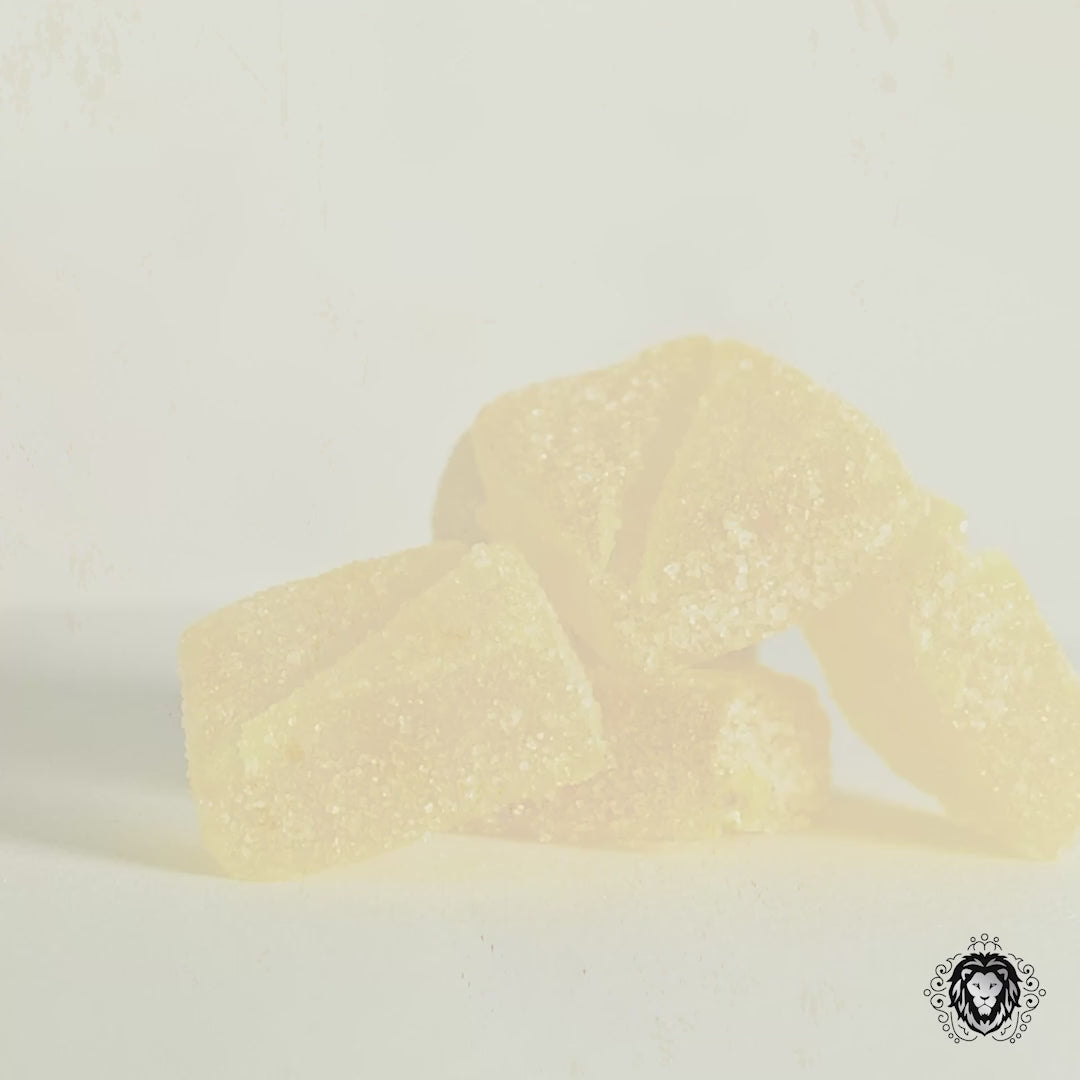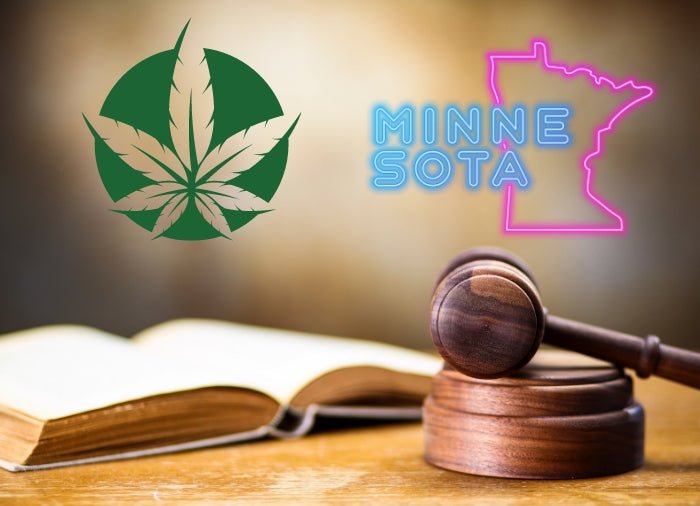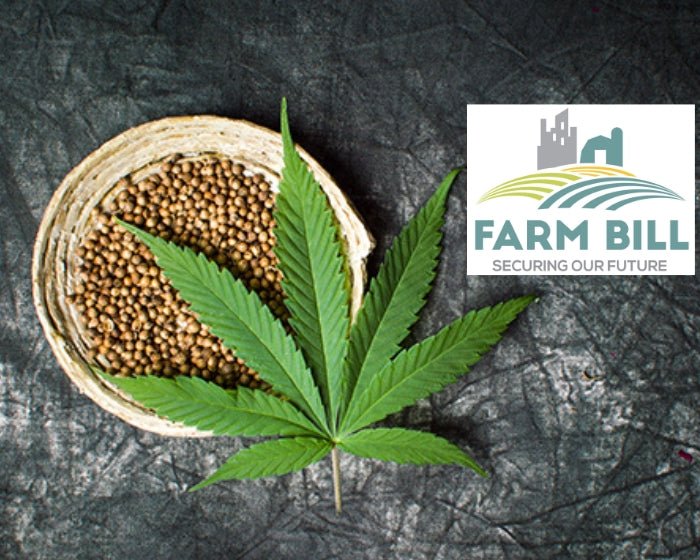The regulatory agency is testing the waters on potential revised guidelines for the proliferation of chemically derived variants, including Delta-8 THC.

A final showdown between the Drug Enforcement Agency (DEA) and manufacturers of controversial synthetically derived cannabinoids could be on the horizon. According to numerous media outlets, DEA will soon reveal its new rules clarifying the legality of chemically produced hemp derivatives like the politically toxic delta-8 THC isomer.
Earlier this month, during the DEA’s 2023 Supply Chain Conference, the Chief of the agency’s Drug and Chemical Evaluation Section, Terrance Boos, when speaking on the topic of emerging trends, informed attendees that DEA officials have received “multiple petitions” on the issue and are “in the process of modifying our [regulations]” on cannabis constituents based on recommendations from the U.S. Department of Health and Human Services (HHS).
His overall PowerPoint presentation covered a wide array of issues, including drug scheduling modifications, internet drug trafficking, counterfeit pill operations, and an entire section on the “decade of responding to the harm,” which addressed synthetic opioids, designer Benzodiazepines, synthetic cannabinoids “CBD to delta-8 THC,” and the evolution of designer drugs such as spice/bath salts.
During his remarks, he explained that the upcoming rule changes would provide clarity concerning the legality of certain cannabinoids since the federal delisting of hemp and its derivatives following the passage of the 2018 Farm Bill.
Since then, the market for items containing a variety of hemp-derived THC variants, including edibles and tinctures, has grown rapidly across the country. That growth has also included the emergence of intoxicating cannabinoids like synthetic delta-8 THC, prompting lawmakers in over 20 states to pass a wide range of laws to address the potential harm caused by products containing the largely unregulated variants.
In discussing the controversial cannabinoid, Boos pointed out that delta-8 only occurs naturally in hemp and cannabis in tiny amounts. And since most delta-8 used in these THC products is created via a chemical process that converts hemp-based CBD into delta-8 THC, he said, “That act of taking that substance in any synthetic step now brings it back under the [Controlled Substances Act].”
"That act of taking that substance in any synthetic step now brings it back under the [Controlled Substances Act].”
- Terrance Boos, DEA Chief of Drug and Chemical Evaluation Section
Earlier this year, Boos addressed another alarming set of synthetic cannabinoids on the market - THC-O’s. THC-O acetate, or ATHC, is a purely synthetic compound derived from hemp. It does not occur naturally in the plant and can only be produced through a chemical process. Many consumers have reported that ATHC is a rather potent cannabinoid and that potency is the main reason for its popularity.
However, certain scientific studies have raised questions about its safety, and advocacy groups like NORML have cautioned against its use. One of those questions came from attorney Rod Kight. Kight sent an inquiry to the Drug Enforcement Agency (DEA) regarding the legal status of THC-O acetate last year. In response, Boos wrote to Kight that the two cannabinoids “do not occur naturally in the cannabis plant and can only be obtained synthetically, and therefore do not fall under the definition of hemp.”
It is important to note that none of these proposed rules are set in stone. Shawn Hauser, a partner at Vicente LLP who co-chairs the firm’s Hemp and Cannabinoids Department, closely monitors the DEA’s actions on potential guideline changes for synthetic cannabinoids. In an interview with Marijuana Moment on Tuesday, she said it was essential to remember that the agency has only issued an “interim final rule.”
She also explained that discussing the issue at the conference is part of the DEA’s outreach strategy to gather input from various industry experts and stakeholders before any final guideline codifications.
Vicente LLP wrote on its website: “We expect DEA to review HHS’s recommendation, develop its own analysis, and eventually publish a proposed rule tracking FDA’s recommendation in the Federal Register. At that point, there will be a public comment period and an opportunity for interested parties to request on-the-record hearings. Our best guess is that the proposed rule will appear in the Federal Register this fall.”
"We expect DEA to review HHS’s recommendation, develop its own analysis, and eventually publish a proposed rule tracking FDA’s recommendation in the Federal Register. At that point, there will be a public comment period and an opportunity for interested parties to request on-the-record hearings. Our best guess is that the proposed rule will appear in the Federal Register this fall.”
- Vicente LLP Website Regarding Proposed DEA Rule Changes
In addition to the DEA issuing a final rule, the upcoming Farm Bill debate and approval process later this year and the broader review concerning the scheduling status of marijuana requested by President Biden last year could also add significant changes to the market
Hauser concludes by saying, “I think it’s important that companies look at this as a whole because what we’re seeing in all these states is this debate as to where these synthetics and intoxicating hemp products belong. What’s the best approach for public safety? What is their legality? The states have had some legitimate level of confusion about the federal legality around some of these synthetically derived cannabinoids. People really need to be paying attention.”
"I think it’s important that companies look at this as a whole because what we’re seeing in all these states is this debate as to where these synthetics and intoxicating hemp products belong. What’s the best approach for public safety? What is their legality? The states have had some legitimate level of confusion about the federal legality around some of these synthetically derived cannabinoids. People really need to be paying attention.”
- Shawn Hauser, Co-chair of Vicente LLP's Hemp and Cannabinoids Department
This action on the part of the DEA is just the latest in a series of somewhat scattered and knee-jerk reactions to an industry where scientific innovation and entrepreneurial competition remain several steps ahead of the regulatory bodies in charge of protecting the consuming public. Hopefully, Boos and his army of regulators will make the right decisions that balance safety and economic viability for the farmers, manufacturers, and retailers comprising the burgeoning hemp sector.







































